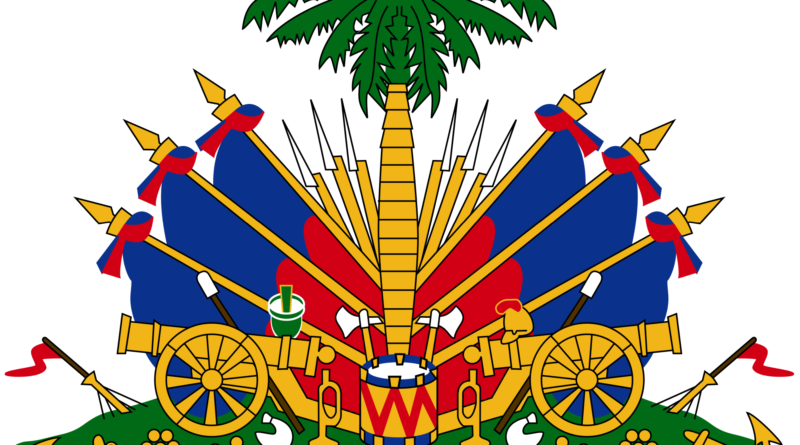Autonomy over Dependence: U.S. Halts Funding Haiti’s Election
By Sophie-Anne Baril, Research Associate at the Council on Hemispheric Affairs
To download a PDF version of this article, click here.
Following political turmoil due to fraudulent elections in Haiti, the U.S. government has decided to cease funding for the country’s upcoming 2016 presidential election. A blessing in disguise, this cessation of external funds could possibly fortify Haiti’s autonomy. In the past, Haiti’s autonomy has been weakened by foreign involvement in its internal matters. For example, in Haiti’s 2015 presidential elections, the United States, along with other international bodies, provided a total of $38 million USD to Haiti’s Conseil Electoral Provisoire (Provisional Electoral Council, CEP).[1] After this presidential election was declared void and inconclusive, another election was rescheduled and ultimately also declared null. Haiti’s next presidential election will be held October 9 2016—that is, if provided the necessary funding and stable political environment. The presidential election’s proposed budget stands at $55 million USD. With the United States stepping out of the image, Haiti has the potential to conduct an autonomous election, setting the stage for greater and beneficial sovereignty in the island-nation.
U.S. State Department spokesman John Kirby affirmed that the United States would not finance Haiti’s presidential election in October.[2] According to Kirby, the U.S. government had notified Haitian officials on July 1 that the United States would discontinue “its assistance toward the completion of the presidential electoral process.”[3] The U.S. government’s spokesman also stated that the United States will not fund the upcoming election because it was not planned within its appropriated budget. The new strategy deviates from the United States’ historical approach on its heavy involvement in Haiti.
In recent history, U.S. involvement in Haitian internal affairs has been significant—particularly through monetary and political influence. For example, in the early 20th century U.S. Marines occupied the Caribbean nation for 19 years. Early in 2004, the U.S. government supported a coup to overthrow Haiti’s first democratically elected president.[4] In 2009, the U.S. government further weakened Haiti’s democratic system by funding and supporting illegitimate parliamentary elections in Haiti.[5] The United States’ extensive history of political and monetary involvement in Haiti has undoubtedly shaped the nation’s governmental structure. Overall, U.S. influence in Haiti has not aided the nation to develop into a stable and sustainable democracy.
Historically, Haiti’s reliance on assistance from developed nations, such as the United States, has done the opposite of propelling the nation forward. Instead, this dependency has prolonged the cycle of corruption—continuing a trend, as described by The Washington Post, of monopolizing economic and political power in Haiti by foreign entities.[6] Now, with the U.S. government affirming its termination of finances for the upcoming election, the Haitian government, for the first time in many years, must rely on fewer outside sources and internal revenue for electoral funding. Spokesman Kirby has stated, “We believe it’s the sound thing to do, the right thing to do for the people of Haiti in the long-term.”[7] This statement, in defense of the cessation of election funds, implies that the U.S. government’s withdrawal from providing funds is two-fold. In addition to not having a budget for the October election, the U.S. government’s discontinued involvement from the election will create space for Haiti to independently rebuild its democratic institutions. Provisional Electoral Council Chief Leopold Berlanger echoed this idea when he said, “a real sovereign country […] should get the means to fund [its] own elections.”[8]
While the possibilities for Haiti’s growth towards autonomy are made possible through the lack of U.S. government funding and involvement, the situation also poses a plausible negative outcome. If the United States will not fund the election, it may not recognize its legitimacy. University of Virginia professor Robert Fatton finds this a troubling prospect: “The fact that the U.S. is pulling $2 million [USD] from the ‘election basket’ may be a sign that it is prepared to delegitimize the forthcoming elections if the results do not coincide with its interests.”[9] This would be the worst-case scenario for Haiti—a country desperate for a valid and transparent election along with an officially recognized leadership.
Nonetheless, with the appropriate funding, the presidential election will take place this October. It is now time for the Haitian government and people to prove their ability to unite and exercise Haiti’s long-awaited autonomy. For long, Haiti, the second nation to gain independence in the Western Hemisphere, has relied on outside aid and intervention. This year Haiti will have the opportunity to reaffirm its autonomy.
By Sophie-Anne Baril, Research Associate at the Council on Hemispheric Affairs
Original research on Latin America by COHA. Please accept this article as a free contribution from COHA, but if re-posting, please afford authorial and instituional attribution. Exclusive rights can be negotiated. For additional news and analysis on Latin America, please go to LatinNews. com and Rights Action.
Featured Photo: Coat of Arms of Haiti. Taken from Wikimedia.
[1] Nienaber, Georgianne. “How Is the US Involved in Haiti’s Current Elections?” Institute for Justice and Democracy in Haiti. September 27, 2015. Accessed July 13, 2016. http://www.ijdh.org/2015/09/topics/politics-democracy/obama-sends-merten-back-to-haiti-as-new-election-crisis-looms/.
[2] Charles, Jacqueline. “U. S. to Haiti: Pay for Your Own Elections.” Miamiherald. July 07, 2016. Accessed July 13, 2016. http://www.miamiherald.com/news/nation-world/world/americas/haiti/article88338777.html
[3] Ibid.
[4] “Haiti: US Interference Wins Elections.” TheHill. October 13, 2015. Accessed July 13, 2016. http://thehill.com/blogs/congress-blog/foreign-policy/256679-haiti-us-interference-wins-elections.
[5] Ibid.
[6] Dupuy, Alex. “Foreign Aid Keeps the Country from Shaping Its Own Future.” Washington Post. January 09, 2011. Accessed July 13, 2016. http://www.washingtonpost.com/wp-dyn/content/article/2011/01/07/AR2011010706511.html.
[7] McFadden, David. “US: No More Financial Help to Conclude Haiti Elections.” ABC News. July 07, 2016. Accessed July 13, 2016. http://abcnews.go.com/International/wireStory/us-financial-conclude-haiti-elections-40417737.
[8] Ibid.
[9] “US Withdraws Funding for Haiti Elections.” The Center for Economic and Policy Research. July 08, 2016. Accessed July 13, 2016. http://cepr.net/blogs/haiti-relief-and-reconstruction-watch/us-withdraws-funding-for-haiti-elections.


